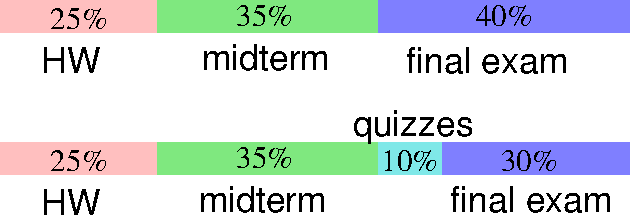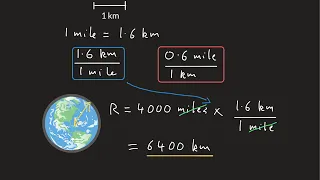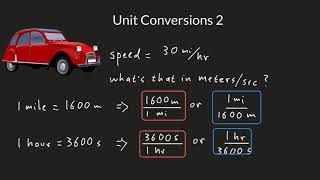Lectures
The course meets (probably?) on Tuesday and Thursday at 1pm - 2:20pm in Crow 204.
In-person attendence is not required but is strongly encouraged, since the material presented in lectures defines the course (there is no required textbook) and we use regular in-class exercises to reinforce learning.
See the Grading section for information on in-class quizzes.
Personnel
Prof. Mark Alford
Office: Compton 358;
Office hour:
Monday, 4pm-5pm
(Zoom links are on the course's Canvas page).
Students are encouraged to ask questions via Piazza (see below)
or to make appointments to see Prof. Alford in person or via zoom.
|
|
To be decided.
|
Piazza
Please enroll in the class Piazza forum.
iClicker
In this course, we will be using iClicker for in-class quizzes and exercises. Please follow the instructions on how to participate via iClicker.
In summary:
- If you do not already have an iClicker account, go to the iClicker website and create a student account. Find "Washington University in St. Louis" and then create the account. Be sure to use your @wustl.edu email address and WashU student ID number. When you're done, click "Sign In" to automatically link your account with Canvas.
- Once you have an iClicker account, connect it to this course by logging in and searching for "Physics of Sustainable Energy".
Student support resources
Information on student resources, health and safety protocols, etc is
available at the
Provost's Syllabus Resources Page.
Required viewing (may be tested in quizzes and exams):
Homework
Instructions for writing a short report
Quizzes
All in-class quizzes
Midterm
Midterm exam
Grading
Grades will be determined by a combination of homework, a midterm exam, in-class quizzes, and the final exam.
The final grade will be a weighted average of
- homework (25%)
- midterm exam (35%)
- final exam + quizzes (40%)
- Contribution from Quizzes:
- If you do better on the final exam than on the quizzes, we
ignore the quizzes, and use your final exam grade as 40% of your course grade.
If you do better on the quizzes than on the final exam,
we use 30% final exam plus 10% quizzes.
So the quizzes can't lower your grade, but they can help compensate for a
weak performance in the final exam.
Your two lowest quiz grades will be dropped, to allow for occasional
absences or misunderstandings.
- PASS/FAIL:
- A grade of C+ or above counts as a "Pass".
|

|
Homework
- Purpose and Format:
- Tests your understanding of material we have already covered
- Contains multiple choice questions, along with regular questions or a short report
- Must be submitted via Canvas by the due date and time.
- Late homework will only be accepted by prior arrangement with
the assistant or the professor
-
Students are encouraged to form study groups and
discuss the course material with each other, but each student must
independently formulate his or her own homework solutions.
Please make sure you understand the university's
policy on academic integrity, especially the section on
"Copying Or Collaborating On Assignments Without Permission".
- When answering a question (other than multiple choice),
you will usually only get partial credit
if you just write down an answer, with no justification. To get full
credit you need to give reasons why your answer is correct.
-
When giving numerical answers, always show the units (eg
100 kg, 500 Calories, etc).
In-class Quizzes
- We will have one in-class quiz every week, on average.
- The quiz will end 10 minutes after the start of class, but students can (by prior arrangement with the professor) arrive early and start the quiz when they arrive, so there is no time limit.
- Answers will be collected via iClicker.
- Each students's two lowest quiz grades will be ignored in calculating
final grades.
Exams
- The exams will have no time limit. Students can stay as long as they like,
or (by prior arrangement with the professor) arrive early. Students who
arrive early will have to stay until the official start time.
- Each exam will resemble a homework as much as possible: it will include
some multiple choice questions and some long-answer questions.
Rules for Quizzes and Exams
These rules apply to quizzes and the midterm and final exams.
- Each student may bring and consult a single letter-size
"crib sheet" of facts and formulas. Both sides of the sheet
may be used, but everything on the sheet must be written or generated
by the student themselves. It should not contain copies
of documents generated by other people.
-
For the exam you are expected to know (or write on the crib sheet)
important general numbers that you might need to answer a real-world question, such as the rough cost of domestic electrical power, the power in sunlight, the output of a large power station, etc. You do not need to record detailed numbers from tables in the book or lecture slides, such as the energy density of gasoline or the atomic number of Carbon. Those will be provided if needed.
- Each student is expected to bring a calculator to the exam.
Calculators that can graph or do algebra are permitted. Calculators
(e.g. cell phones) that can connect to the internet or other external
sources of information are not permitted.
- When answering a question (other than multiple choice),
you will usually only get partial credit
if you just write down an answer, with no justification. To get full
credit you need to give reasons why your answer is correct.






